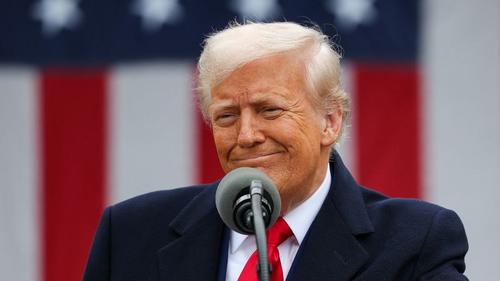Business
How Trump’s Tariffs Threaten South Africa’s Billionaires and Thousands of Jobs

The economic tremors caused by US President Donald Trump’s tariffs have not only rattled global markets but have also cast a shadow over South Africa’s billionaires and job market. While some of South Africa’s wealthiest individuals have managed to weather the storm, thousands of jobs are now at risk, particularly in sectors like agriculture and automotive manufacturing.
The Impact on South Africa’s Billionaires:
South Africa is home to some of the world’s most well-known billionaires, including Elon Musk, the world’s richest person, and prominent figures like Johan Rupert and Nicky Oppenheimer. However, despite their immense wealth, they are not immune to the repercussions of Trump’s unpredictable tariff policies. Musk, for example, has lost a staggering $121 billion in wealth this year, a dramatic hit to his net worth. In contrast, Rupert’s wealth has increased by $181 million, while Oppenheimer saw a decline of $150 million.
The fluctuating tariffs, combined with Trump’s changing policies, have wreaked havoc on global markets, and South Africa’s richest citizens are feeling the effects. While the wealthy may have the resources to absorb these losses, the consequences for the country’s broader economy are far-reaching.
Trump’s Tariffs and South Africa’s Job Market:
While billionaires may weather the storm, the real concern lies in the impact these tariffs have on South Africa’s working class. As the country grapples with staggering income inequality—ranking as the most unequal nation in the world—Trump’s tariffs threaten to exacerbate existing job losses and economic struggles.
The agricultural sector, a major contributor to South Africa’s economy, faces significant setbacks, with potential losses of $8.21 billion in exports to the US. This is especially concerning as agriculture is responsible for employing nearly one million South Africans.
Similarly, the automotive industry, which exports cars to the US, could also suffer. South Africa sends five to six percent of local car production to the US each year, with manufacturers like BMW and Mercedes-Benz employing over 100,000 people in the country. The tariffs threaten both the industry’s profitability and the livelihoods of thousands of workers.
South Africa’s Economic Outlook:
As a result of Trump’s tariffs, economists are downgrading South Africa’s economic growth outlook. Investec’s chief economist, Annabel Bishop, has reduced the country’s growth forecast from 1.8% to 1.3%, reflecting the strain of these new tariffs. Furthermore, despite South Africa likely avoiding the recession predicted for the US, the country is still feeling the negative effects on its economy.
In addition, the potential loss of the African Growth and Opportunity Act (AGOA), a preferential trade agreement between South Africa and the US, raises further concerns. AGOA has helped safeguard thousands of jobs in South Africa, and the loss of this agreement could have a devastating effect.
As South Africa continues to navigate these turbulent economic times, the long-term impact of Trump’s tariffs will undoubtedly affect both the wealthiest citizens and the working class. The combination of tariffs, political uncertainty, and a potential loss of key trade agreements underscores the delicate balance South Africa must maintain in order to protect its economy and its people.
{Source: IOL}
Follow Joburg ETC on Facebook, Twitter , TikTok and Instagram
For more News in Johannesburg, visit joburgetc.com


























